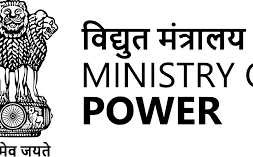
SEBI Urges AIFs to Lead ESG Integration for India’s Sustainable Growth – EQ
In Short : SEBI has urged Alternative Investment Funds (AIFs) to lead ESG adoption among unlisted companies to support India’s green goals. With India needing \$250 billion by 2030 for its energy transition, SEBI emphasized AIFs’ role in sustainable finance. It also supports introducing ESG-labeled AIFs and blended finance models to attract global capital and align with international standards.
In Detail : SEBI has called on Alternative Investment Funds (AIFs) to play a more active role in advancing India’s green transition by embedding Environmental, Social, and Governance (ESG) principles into their investment strategies. The regulatory body believes AIFs are well-positioned to drive ESG adoption in the unlisted space, where regulatory oversight is traditionally less stringent.
Speaking at the IVCA Renewable Energy Summit, SEBI Executive Director Ruchi Chojer highlighted the limitations of public capital markets in funding India’s energy transition. She noted that AIFs, with their long-term and risk-tolerant capital, can effectively fill the gap by financing crucial sectors like grid modernization, renewable storage, and transmission infrastructure.
India requires approximately \$250 billion by 2030 to support the expansion of its renewable energy ecosystem. Chojer said SEBI is committed to offering regulatory certainty and reducing policy-related risks to attract more private capital. She emphasized that innovative structures such as blended finance will be vital for achieving this goal.
AIFs receive nearly 40% of their investments from international sources, making it important for them to align with global ESG norms. SEBI is encouraging domestic funds to adopt consistent disclosure and reporting practices, similar to those in global markets, to boost transparency and investor confidence.
The introduction of the Business Responsibility and Sustainability Reporting (BRSR) framework has already made ESG reporting more uniform among listed entities. Over 1,000 companies have adopted BRSR standards, and India is one of the first countries to regulate ESG rating agencies, which further enhances accountability in the space.
SEBI is also open to proposals for creating ESG-labeled AIFs, offering a potential new category of funds that cater specifically to sustainability objectives. These developments are part of SEBI’s broader effort to mainstream ESG investing in India and ensure the financial system supports a sustainable and inclusive economy.













